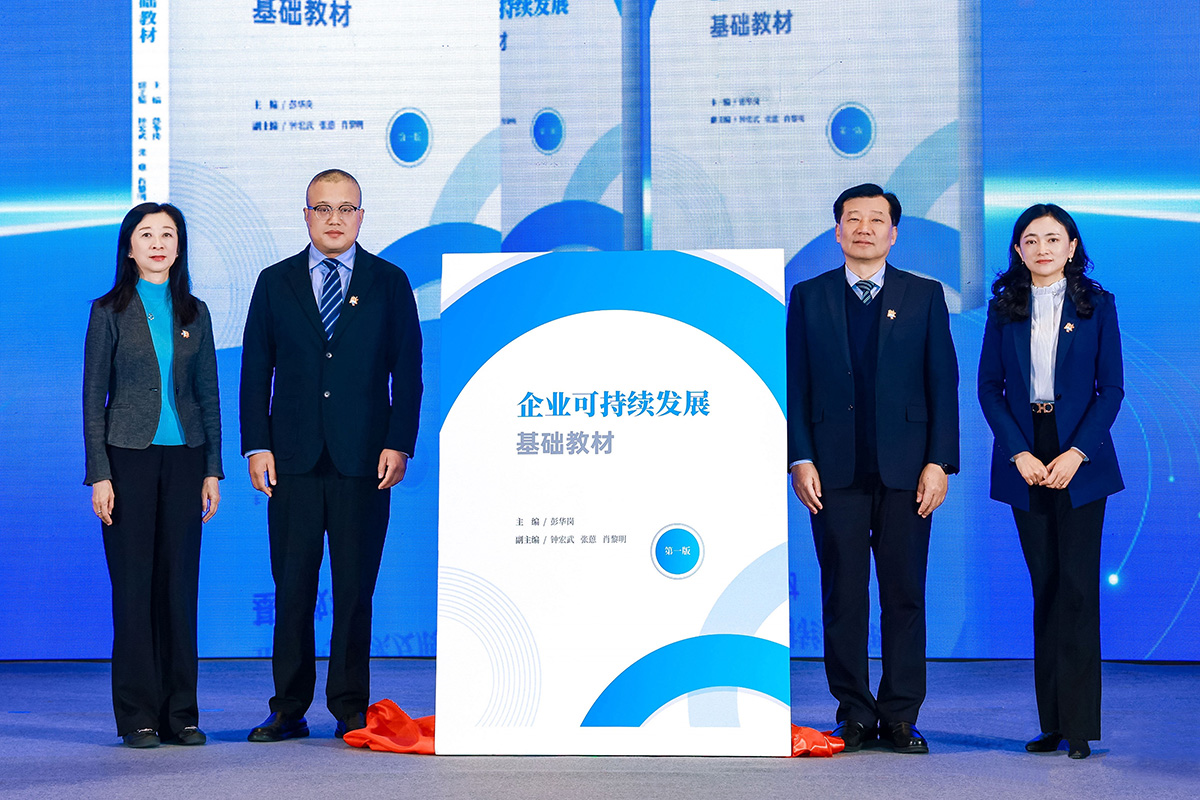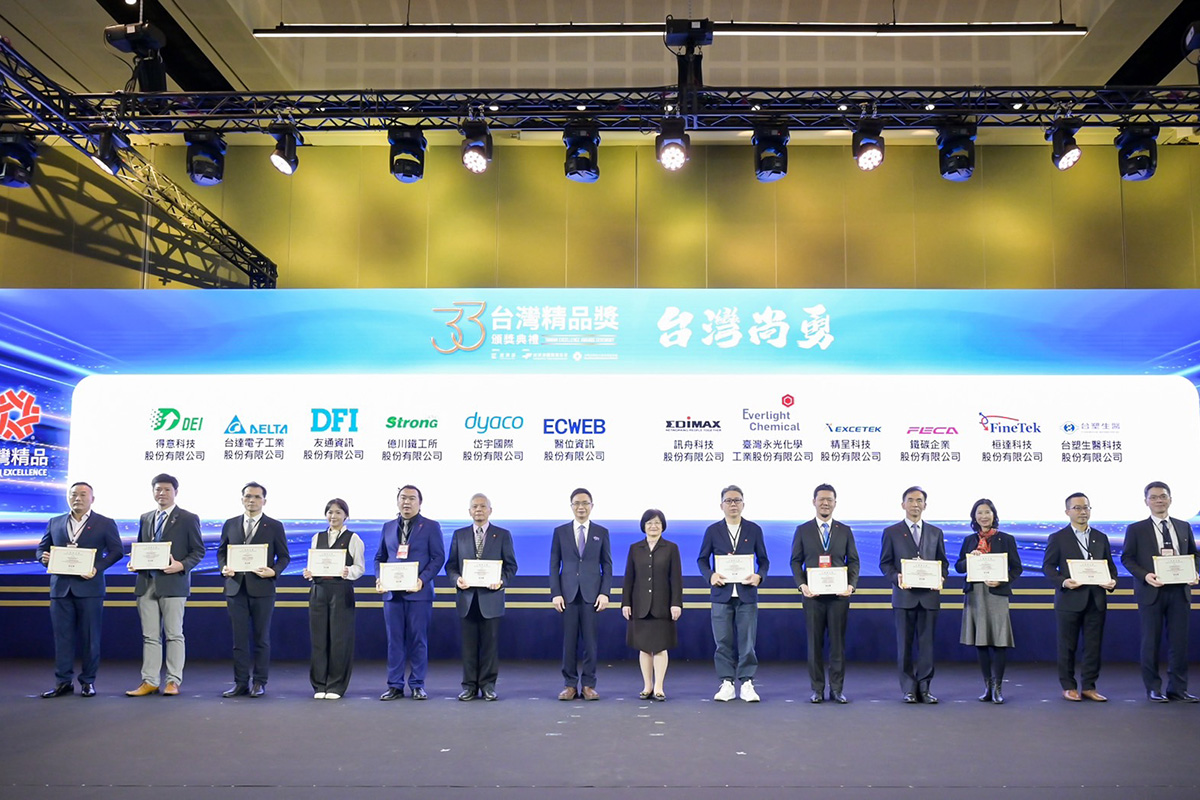To inject new vitality into rural communities, the 2024 Delta Cup International Solar Building Design Competition, themed "Sunshine · Rural Resilience," held its final evaluation meeting in Beijing. This year's competition featured two topics located in Hebei Province: the "Construction Project of Erpuzi Village, Huaian County, Zhangjiakou City" and the "Construction Project of Libazhuang Village, Qingyuan District, Baoding City." The goal is to improve disaster prevention and resilience in rural areas, promote the use of renewable energy in construction, and create safe, sustainable, and thriving rural community models. The competition attracted 786 teams from around the world, with 204 valid submissions. After multiple rounds of intense evaluation, an expert panel—led by Cui Kai, Academician of the China Academy of Engineering, and composed of top academics from both domestic and international institutions—awarded 2 first prizes, 4 second prizes, and 6 third prizes. Among the winners, the team from Xi’an University of Architecture and Technology took home the first prize for their project "Alternate Phyllotaxy," while the team from Inner Mongolia University of Technology earned the first prize for their design "Wind Sunshine – Rural dwellings on boat."
The expert review panel noted that the first prize-winning project from Zhangjiakou, "Alternate Phyllotaxy," demonstrates both diversity and modernity in its architectural design. The design of the central corridor improves public accessibility, making it ideal for tourism and community activities, while also serving as a centralized space for refuge and supply storage. The integration of both passive and active solar technologies, combined with resilient design elements, is particularly innovative. The first prize-winning project, titled "Wind Sunshine – Rural dwellings on boat," aims to provide an emergency refuge for villagers during flooding, allowing the building to function like a boat on water. This design enhances the village's resilience to flooding, with shared lower-level spaces offering additional public areas. Furthermore, it leverages energy-saving and carbon-reduction technologies, making it both practical and sustainable.
Academician Cui Kai emphasized that with the continued advancement of the "dual carbon" initiative, building greening, energy conservation, and low carbonization have become widely accepted goals within the construction industry. Competitions focused on green practices, low-carbon solutions, and renewable energy use are attracting growing attention. The award-winning projects in the Delta Cup competition have showcased significant progress in the rationality, innovation, and feasibility of applying green technologies.
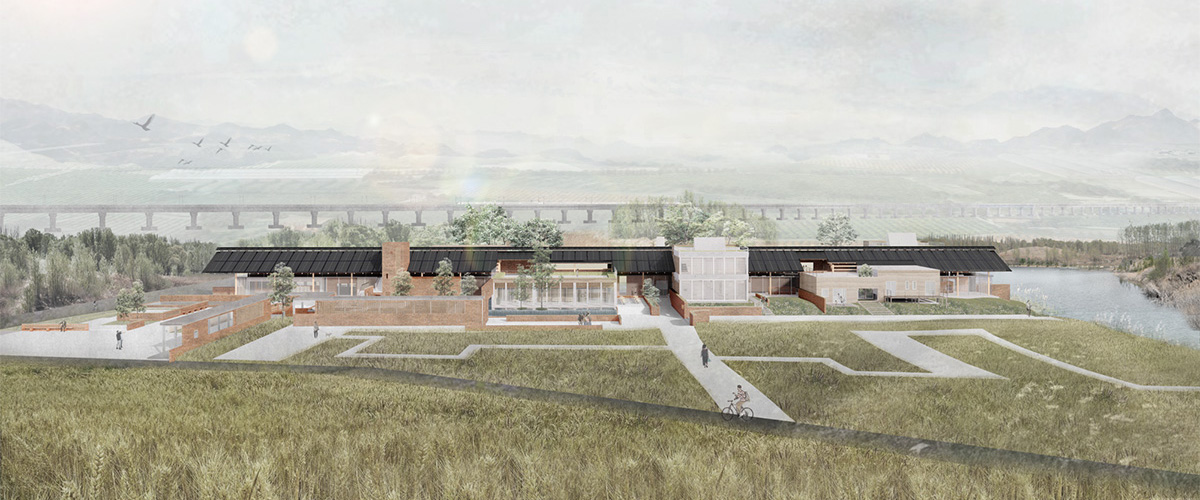
The first prize-winning project, "Alternate Phyllotaxy" from Xi'an University of Architecture and Technology.
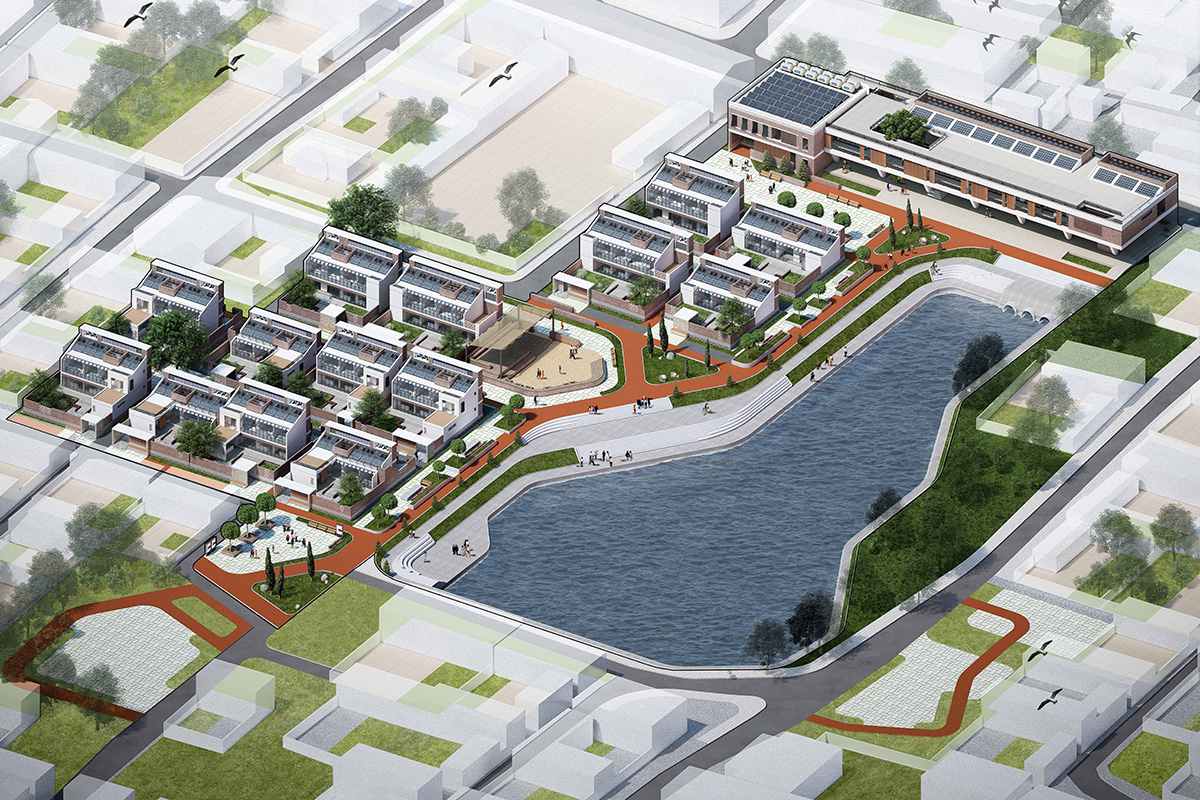 The first prize-winning project, "Wind Sunshine–Rural Dwellings on Boat" from Inner Mongolia University of Technology.
The first prize-winning project, "Wind Sunshine–Rural Dwellings on Boat" from Inner Mongolia University of Technology.
The final evaluation meeting of the competition was conducted in a live defense format. The 15 finalist teams presented their projects using various mediums, including images, text, models, and videos, and responded to questions from the panel. After three rounds of selection and discussion, a total of 66 awards were presented, including the Overall Award, the Design Creativity Award, and the Technical Excellence Award for this year's competition.
Since its inception in 2005, the Delta Cup International Solar Building Design Competition has grown over the past two decades to attract more than 10,000 teams from around the world. The competition has played a key role in promoting advanced concepts of low-carbon and environmentally friendly practices. A standout feature is that award-winning projects have the opportunity for real-world construction and implementation. The 2023 Delta Cup project, the Zero Carbon Enhancement Project at Guangzhou Science and Education City (Guangzhou Public Utility Technician College Club Complex), is set for official completion and operation in October 2024. This project incorporates technologies such as passive shading, natural ventilation, high-efficiency air conditioning, solar photovoltaics, and building intelligence to create a balance between energy consumption and production, achieving zero energy consumption year-round. To date, six projects from the Delta Cup competition have been built and are currently in use, with one more nearing completion. These projects, which integrate solar energy with building applications, are making significant contributions to public service.
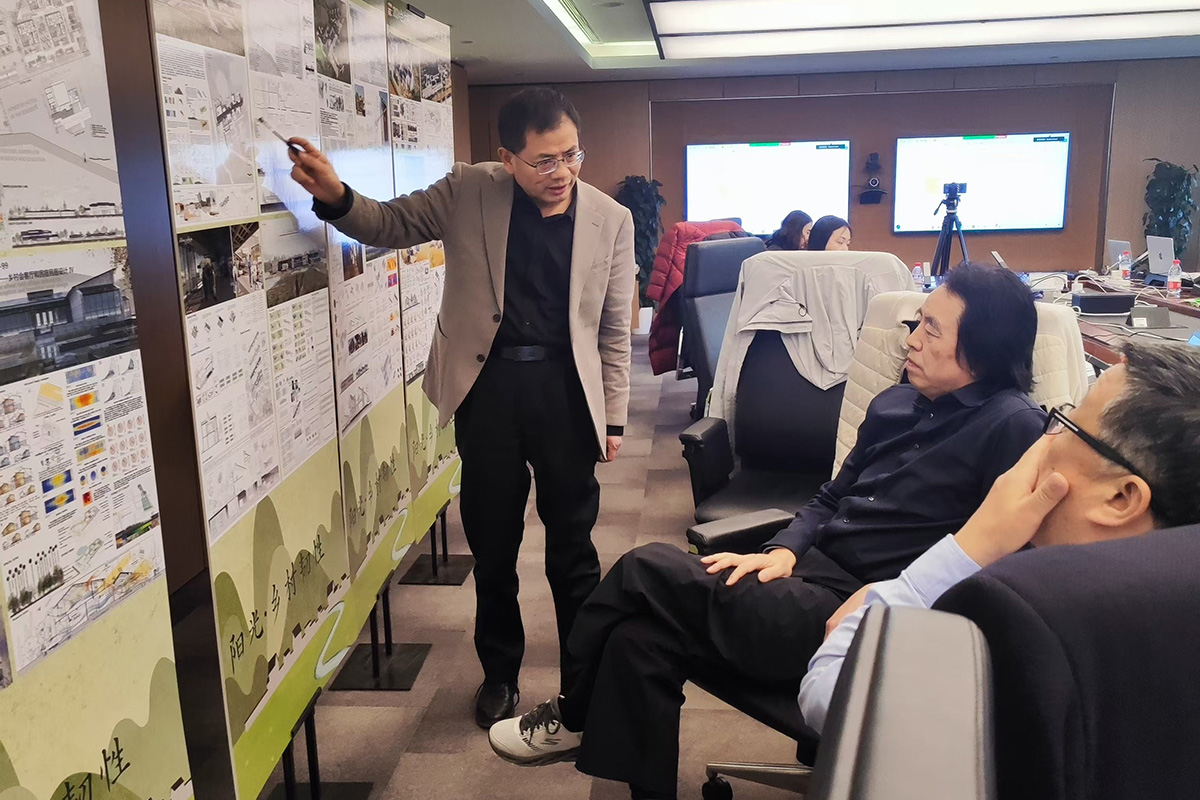
Zhong Jishou, Chief Engineer of China Architecture Design & Research Group (first from the left), discusses the evaluation with on-site experts.
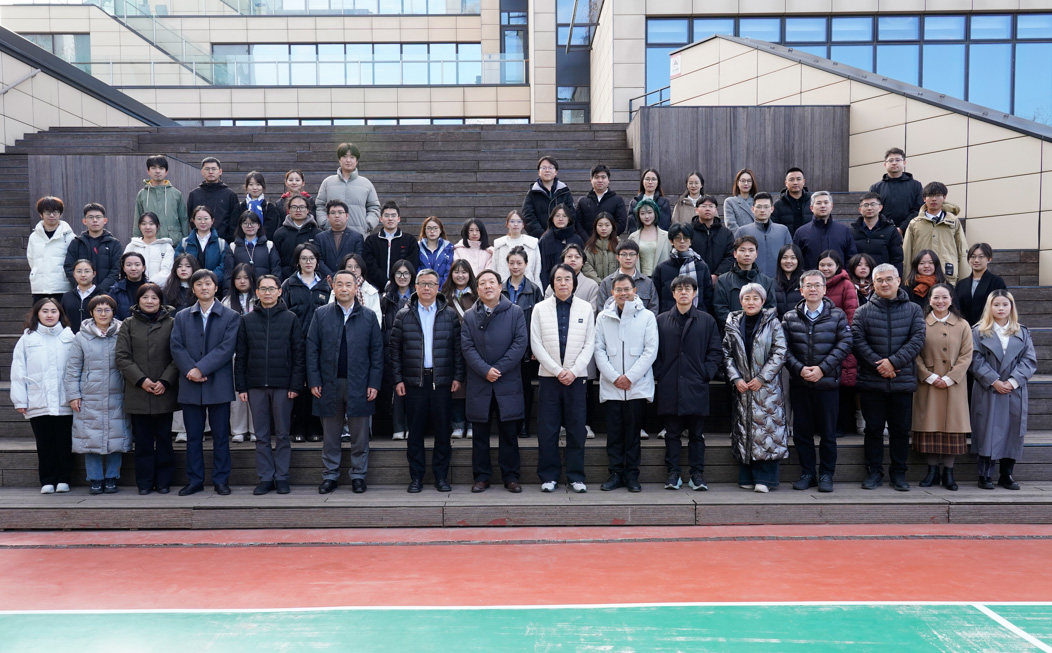 (the first row) Academician of China Academy of Engineering and National Engineering Survey and Design Master Cui Kai (eighth from the left), director of China National Engineering Research Center for Human Settlements Zhang Lei (fifth from the right), and Public Welfare Department Director of Delta Greentech (China) Eason Chen (fourth from the right) pose for a group photo with the competition review experts and on-site defense teams.
(the first row) Academician of China Academy of Engineering and National Engineering Survey and Design Master Cui Kai (eighth from the left), director of China National Engineering Research Center for Human Settlements Zhang Lei (fifth from the right), and Public Welfare Department Director of Delta Greentech (China) Eason Chen (fourth from the right) pose for a group photo with the competition review experts and on-site defense teams.













